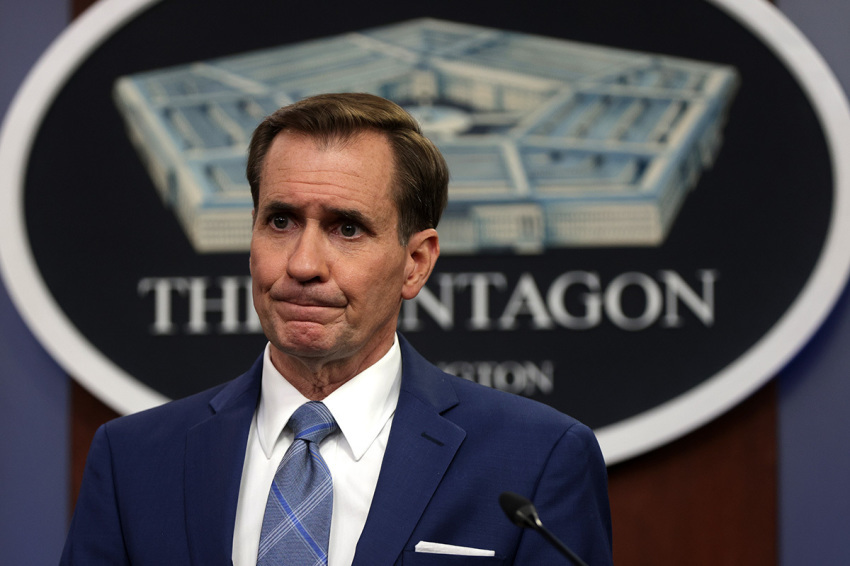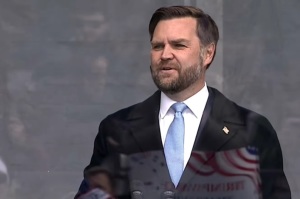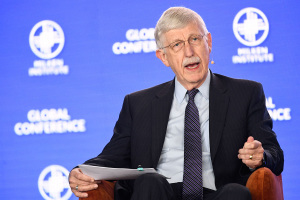US blames Hamas for Gaza truce breakdown as war resumes: 'The onus is on Hamas'

The ceasefire between Israel and Hamas ended Friday as Israeli forces resumed airstrikes on the Gaza Strip, marking a significant escalation after a weeklong pause in hostilities. The United States squarely blamed Hamas for the breakdown, citing its failure to provide a list of hostages for release.
Israel claimed to have struck over 200 Hamas targets, and the Hamas-run Gaza Health Ministry reported a significant toll in the hours following the resumption of hostilities, with reports of bombardment in eastern areas of Khan Younis in southern Gaza forcing residents to flee.
At least 184 Palestinians were killed and more than 589 injured, according to Reuters.
Israel’s Defense Minister Yoav Gallant described the military’s actions as effective, vowing to continue until their objectives are met.
John Kirby, the U.S. National Security Council’s coordinator for strategic communications, emphasized Hamas’ role in the ceasefire’s collapse.
“It’s because of Hamas that this pause ended,” Kirby said, according to USA Today. “They were just simply unable, failed to produce a list of hostages that could help enable that pause extending.”
"The onus is on Hamas to be able to produce a list of hostages that they can get out so that we can try to get this pause back in place.”
Hamas accused Israel of rejecting offers to release elderly hostages and the bodies of hostages.
Hamas official Osama Hamdan told the Associated Press that the group is open to civilian hostage and Palestinian prisoner swaps but noted disagreements over the terms of such exchanges.
The initial four-day pause began on Nov. 24 and was extended twice. Israel declared that the temporary truce could stay in place if Hamas released 10 hostages daily.
The United Nations, which has called for a permanent ceasefire, said both parties face a "fundamental responsibility" to prevent "inhuman collective suffering and dramatically expand humanitarian aid to Gaza."
"I deeply regret that military operations have started again in Gaza. I still hope that it will be possible to renew the pause that was established," UN Secretary-General António Guterres said Friday.
"The return to hostilities only shows how important it is to have a true humanitarian ceasefire."
The Palestinian Red Crescent reported that Israeli forces halted all aid deliveries into Gaza through the Rafah border crossing. However, COGAT, the Israeli agency for civilian coordination with the Palestinians, stated that some aid had been allowed through at the request of the U.S.
During the pause in fighting, over 100 hostages, including women and children, were released from Hamas captivity. Kirby said at least four American hostages were released by Hamas. In exchange, Israel released at least 240 Palestinian prisoners.
The war was sparked by Hamas' Oct. 7 attack in southern Israel that killed over 1,200, mostly civilians. At least 240 people were taken hostage. In response, Israel launched airstrikes and a ground offensive seeking to eradicate Hamas, which has controlled the Gaza Strip since 2007. Before the ceasefire, Hamas-run Gaza Health Ministry said that over 13,000 people were killed.
Hamas is still holding 137 hostages — including 126 Israelis and 11 foreign nationals.
The Israeli military has confirmed Friday that at least six more people believed to have been held hostage by Hamas are dead, including three members of Kibbutz Nir Oz and an attendee of the music festival in Re'im.
International reactions have been swift, with Germany’s Foreign Minister Annalena Baerbock calling for a renewed ceasefire and Hezbollah attacking Israeli troops along the border, marking its first engagement since the truce.
The World Health Organization expressed extreme concern over the continued fighting and the potential collapse of Gaza’s healthcare system. WHO's Dr. Rik Peeperkorn said during a briefing at the UN on Friday that 18 of 37 hospitals in Gaza are only partially functional.
Israeli airstrikes also extended to the outskirts of Damascus, with Syrian state media reporting strikes and Syrian air defenses responding. These strikes are part of Israel’s broader strategy in the region, often targeting Hezbollah and other Iran-backed militant groups in war-torn Syria.



























